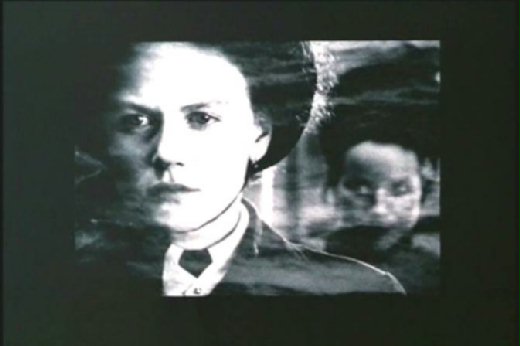

 字體:小 中 大
字體:小 中 大 |
|
|
|
| 2007/02/13 10:45:03瀏覽1175|回應0|推薦4 | |
在亨利詹姆斯《一位女士的畫像》中最著名的第四十二章當中,作者描述羅馬這城市對女主角伊莎貝爾而言,命定是她無法逃脫充滿「嫉羨」的「原初場景」,雖然想以客觀的局外者窺視母體的都會世界,終究洞悉自己轉化成母體的一部份。在羅馬的黑岩宮殿(The Palace of the Black Rock)[1]中,伊莎貝爾從一位溫柔的妻子轉變成被奧斯蒙擄掠拘禁的上流社會貴婦。作者在四十二章,描述伊莎貝爾想像結婚初期對奧斯蒙的「母性」關愛: 她是他知道的最富於想像力的女人,這可能是真的,因為在那幾個月裏,她一直沉浸在幻想中,她看到的是一個虛無飄渺的世界。她對他有一個美妙的幻想,那是她在迷戀他的時候形成的,啊,那些充滿幻想的時刻!但那想像卻不是真正的他。某個特質打動了她,她在那裏看到了一幅最動人的圖畫:他貧窮,孤獨,然而卻顯得如此高貴-這一切引起了她的興趣,似乎給她提供了一個機會。他的處境,他的智慧,他的臉,彷彿都包含著一種無可名狀的美。同時她也看到,他一無所能,無所作為,但這種感覺卻以含情脈脈的姿態出現,因為溫柔與尊敬一脈相成. . . 她在這中間看到了一種母性的元素-一個女人感覺自己有所貢獻,為愛獻上一切的幸福感。(《一位女士的畫像》491-92) He (192) admired her--he had told her why: because she was the most imaginative woman he had known. It might very well have been true; for during those months she had imagined a world of things that had no substance. She had had a more wondrous vision of him, fed through charmed senses and oh such a stirred fancy!--she had not read him right. A certain combination of features had touched her, and in them she had seen the most striking of figures. That he was poor and lonely and yet that somehow he was noble--that was what had interested her and seemed to give her her opportunity. There had been an indefinable beauty about him--in his situation, in his mind, in his face. She had felt at the same time that he was helpless and ineffectual, but the feeling had taken the form of a tenderness which was the very flower of respect. He was like a sceptical voyager strolling on the beach while he waited for the tide, looking seaward yet not putting to sea. It was in all this she had found her occasion. She would launch his boat for him; she would be his providence; it would be a good thing to love him. And she had loved him, she had so anxiously and yet so ardently given herself--a good deal for what she found in him, but a good deal also for what she brought him and what might enrich the gift. As she looked back at the passion of those full weeks she perceived in it a kind of maternal strain--the happiness of a woman who felt that she was a contributor, that she came with charged hands. 在與奧斯蒙結婚後居住的羅馬家中,伊莎貝爾與內在客體-母親-對話,自體與正面客體和諧結合,她渴望自身能成為奧斯蒙愛的客體,因此將母親的正面形象深固內化於其心中,這種對愛付出的渴望,恢復了其童年理想的自體,奧斯蒙內攝成為她關注的客體,在重獲正面客體的同時,她也達到自體修復整合的目的。但在伊莎貝爾發現奧斯蒙與梅爾夫人之間的不倫之戀之後,才驚覺自己識人不清,使她反墬入愛/恨的深淵中。對她而言,這幻影幢幢豪宅也因此充滿幽暗模糊的回憶,虛幻與真實,乍隱乍現,旋即倏乎而逝,如同人生劇場陰黯的一角。此時,伊莎貝爾的自體從與母親客體結合的和諧狀態中分離出來,成為自現實中逃逸而無法觸及的對象,那個被理想化的想像他者。就伊莎貝爾的觀點,梅爾夫人成為一個負面客體,一個被排斥、壓抑的對象,一個深藏在她內心,不可告知的 「原初場景」(primal scene): 無數的幻想朝她眼前湧來,她心亂如麻,不能安靜。不論她走到哪裡,這些幻想照樣會找到她,那怕她靠在枕上,它們還是會來作弄她,不讓她休息。我說過,她相信她不想違抗它,最好的證明就是:她在客廳裡一直逗留到半夜,力圖說服自己,為什麼不能像往郵筒裡丟一封信那樣,把帕西嫁出去,反對這麼做是毫無理由的。鐘敲了四下,她站了起來,她終於不得不上床去了,因為燈早已熄滅,蠟燭已經燒到燭臺上。但是那怕這時,她仍然在屋子中央停留一下,凝視著又來到她眼前的幻象:她的丈夫和梅爾夫人雖意識到她的存在,仍親暱地待在一起。(《一位女士的畫像》500) She heard the small hours strike, and then the great ones, but her vigil took no heed of time. Her mind, assailed by visions, was in a state of extraordinary activity, and her visions might as well come to her there, where (205) she sat up to meet them, as on her pillow, to make a mockery of rest. As I have said, she believed she was not defiant, and what could be a better proof of it than that she should linger there half the night, trying to persuade herself that there was no reason why Pansy shouldn't be married as you would put a letter in the post-office? When the clock struck four she got up; she was going to bed at last, for the lamp had long since gone out and the candles burned down to their sockets. But even then she stopped again in the middle of the room and stood there gazing at a remembered vision--that of her husband and Madame Merle unconsciously and familiarly associated. 這就是為什麼伊莎貝爾必須與梅爾夫人切割:那個愛恨交織的曖昧狀態,那個壞客體,那個鬼魅般的「母親」。鞏美之認為:“離開母親,也是一種方向的轉變(Ab-wendung),從一個被愛的女人(Une-aimée) 轉化到愛「他者」的女人。以一種獨特的方式,我們得以了解陽具和閹割對女性慾望構成的重要性”(158)。克萊恩在其著作《兒童精神分析》中曾描述這種對於母親嫉羨的主因: 小女孩最深的焦慮是害怕她身體的內在被盜空與摧毀。女孩因為與母親的關係而產生的口腔挫折使她背離了母親,而以父親的陰莖作為令她滿足的客體,這個渴望讓她在發展中跨出重要的一步。她幻想母親將父親的陰莖放到她身體裡面,並且給他乳房,這些幻想是她早期性理論的核心,也由於來自父母的挫折,而引發了她對母親的嫉羨與憎恨。這發展階段的男孩和女孩相信母親是提供營養的根源,她的身體裡面含有所有他們渴望的東西,包括父親的陰莖。由於那來自母親的挫折,這種性理論增強了小女孩對於母親的恨意,因此使小女兒產生想攻擊並摧毀母親的內在、並使她裡面變成貧瘠的施虐幻想。由於害怕被報復,這種幻想成了小女孩深層焦慮情境的基礎。(219) 伊莎貝爾意識到她所愛的乳房-母親內化成壞乳房,一個全能的陽具母親,成為複製象徵體系的媒介,是她與象徵世界的第一個對話者,也是一個「情感映鏡」(affect-mirroring)的原初客體。當伊莎貝爾的自體察覺與梅爾夫人的情感映鏡產生與先前經驗相互矛盾的情緒時,會產生「異化自體」與「天生自體」的斷層現象。這種「異化自體」的經驗使得她理解母親的雙性性質,一個母親鮮活的印記在父權社會下浮現,也意謂著伊莎貝爾在主體建構下須不斷抹去自身部分的母性客體,以便見容於父系的社會體系。因此,母親既是記憶深處無法抹滅的生命原型,也是進入象徵秩序的觸媒劑。在詹姆仕1917年寫給艾迪斯•華頓的信中,他指出羅馬是一個既「變態」又「粗俗」的城市。在《一位女士的畫像》中,羅馬是詹姆仕筆下的「黑暗之都」,充滿「嫉羨」及「異化」的經驗,永不復返的「母腹」之國。不同於康萍影像中的依莎貝爾重回象徵母親子宮的倫敦花園宮殿,在詹姆仕原著的結尾,伊莎貝爾返回這永恆的古都羅馬,似乎顯現一幅仕女拘禁圖,在眾神廟中,伊莎貝爾成為一個被詛咒的靈魂,一個漂流在異鄉城市中的遊魂。
|
|
| ( 創作|文學賞析 ) |












